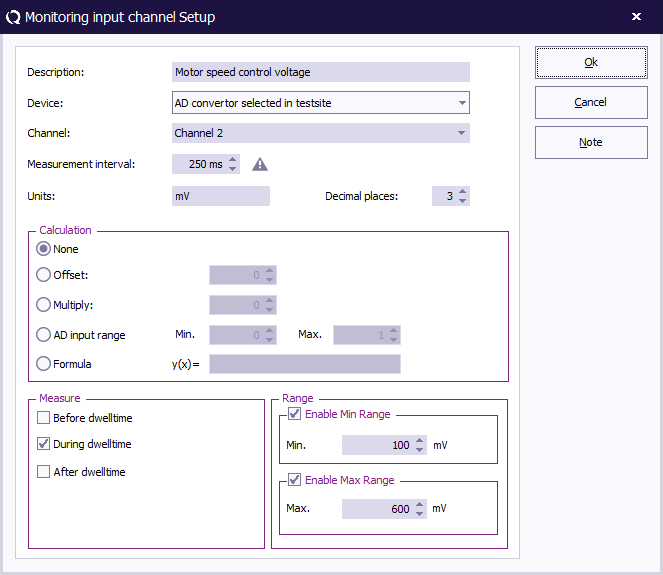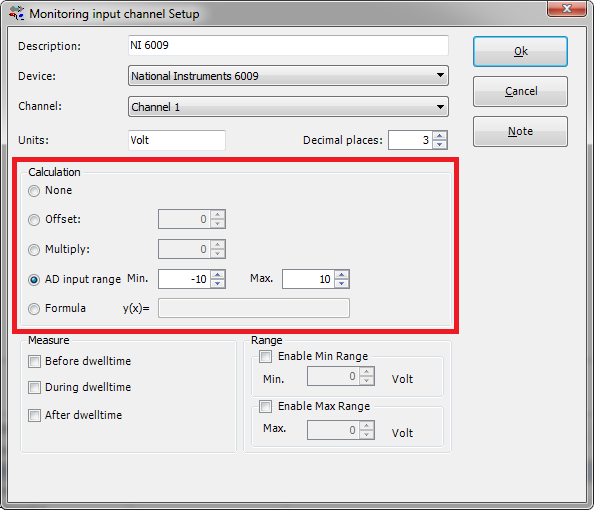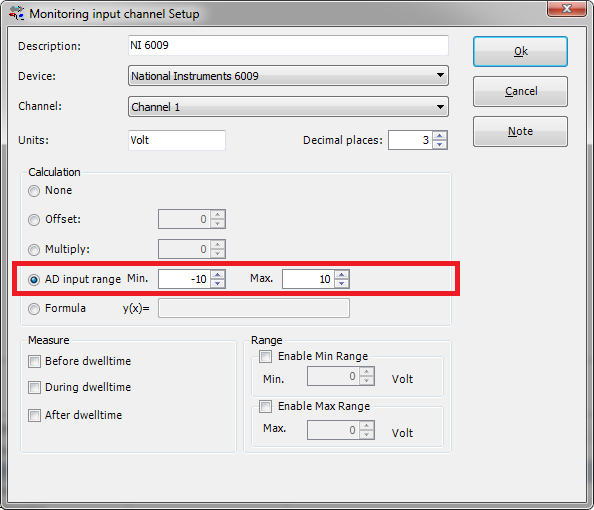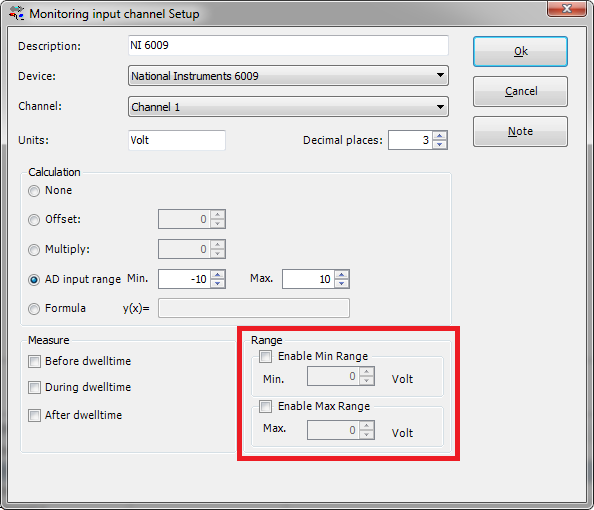Monitoring input channel setup: Difference between revisions
Jump to navigation
Jump to search
(→Range) |
|||
| Line 24: | Line 24: | ||
{{ScreenElementDescription|None|RadiMation will <b>not apply any additional calculations</b> to the value the ''device driver'' is returning. }} | {{ScreenElementDescription|None|RadiMation will <b>not apply any additional calculations</b> to the value the ''device driver'' is returning. }} | ||
{{ScreenElementDescription|Offset|RadiMation will additionally apply the specified <b>offset</b> to the retrieved value by the ''device driver''. }} | {{ScreenElementDescription|Offset|RadiMation will additionally apply the specified <b>offset</b> to the retrieved value by the ''device driver''. Similar to the formula y = (<i>offset</i>+X). }} | ||
{{ScreenElementDescription|Multiply|RadiMation will additionally apply the specified <b>multiply factor</b> to the retrieved value by the ''device driver''. }} | {{ScreenElementDescription|Multiply|RadiMation will additionally apply the specified <b>multiply factor</b> to the retrieved value by the ''device driver''. Similar to the formula = (<i>factor</i>*X). }} | ||
{{ScreenElementDescription|AD input range|RadiMation will <b>not apply any additional calculations</b> to the value the ''device driver'' is returning.}} | {{ScreenElementDescription|AD input range|RadiMation will <b>not apply any additional calculations</b> to the value the ''device driver'' is returning.}} | ||
{{ScreenElementDescription|Formula y(x)|RadiMation will additionally apply the specified <b>formula</b> to the retrieved value by the ''device driver''. }} | {{ScreenElementDescription|Formula y(x)|RadiMation will additionally apply the specified <b>formula</b> to the retrieved value by the ''device driver''. }} | ||
Revision as of 13:30, 10 November 2015
Monitoring input channel setup
| Warning: | This page is a draft |
General[edit]
The Monitoring input channel setup window can be opened by opening a new or existing EUT file:
-
 File
File
-
 Open
Open
-
 EUT or
EUT or
-
-
-
 File
File
-
 New
New
-
 EUT
EUT
-
-
-
Then select the 'Monitoring input channels' panel. This window enables the end-user to configure the used AD-Converter during the test:
Settings[edit]
| Enter the description of the device. E.g. use the brand and/or identification number. |
| From the dropdown the used AD-Converter driver can be selected. |
| Based on the selected driver the amount of available channels are shown. In the past only eight channels were allowed. Older devices are still be limited to support a maximum of eight channels in this list, while their driver supports more channels. |
| Enter the unit corresponding to the values which will be retrieved from the device. |
Calculation[edit]
| RadiMation will not apply any additional calculations to the value the device driver is returning. |
| {{{2}}} |
| {{{2}}} |
| RadiMation will not apply any additional calculations to the value the device driver is returning. |
| RadiMation will additionally apply the specified formula to the retrieved value by the device driver. |
It is needed to match the expected value with the retrieved value by the device driver. Especially for older device driver it is needed to specify the allowed value range of the device.
Measure[edit]
Range[edit]
| This will show a graph line of the specified minimum in the graph and table. |
| This will show a graph line of the specified maximum in the graph and table. |



